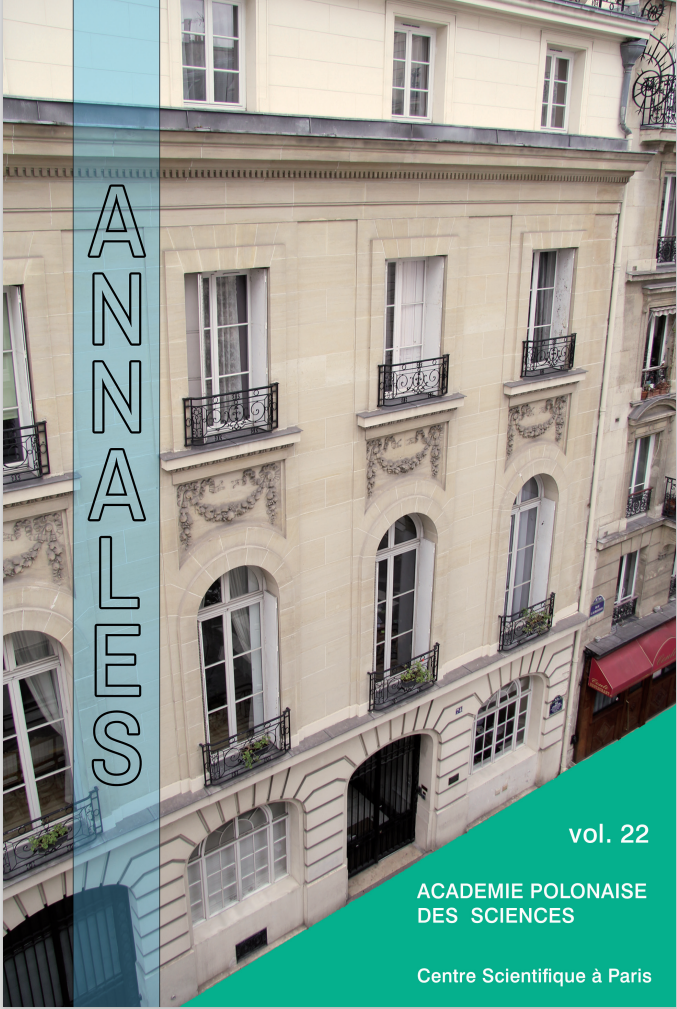Article / interview
MIRON B. AND US IN PARIS
On the 15th and 16th of November an international conference on Miron Białoszewski's Memoir from the Warsaw Uprising was held, celebrating the 50th anniversary of the book's publication. The organisers of the event were the Scientific Center of Polish Academy of Sciences in Paris and the Institute of Literary Research as represented by Piotr Sobolczyk; the French partner of the conference was the University of Lille as represented by Anna Synoradzka. All the papers were presented in French.

On the first day of the conference also a debate on the translations of Memoir took place, hosted by Synoradzka and Sobolczyk, and with two exceptional guests, Luca Bernardini (translator to Italian) and Erik Veaux (translator to French). On the second day there was an hommage to Hanna Konicka, professor at Sorbonne University who published a monograph on Białoszewski in French, and co-translated with Veaux Białoszewski's poems; Konicka died in 2021. The proceedings from the conference in French have just been published in the Annales of the Scientific Center and are available here: https://paris.pan.pl/fr/project/annales-vol-22/
One can find there papers by Agnieszka Karpowicz, Tadeusz Sobolewski, Piotr Sobolczyk, Piotr Seweryn Rosół, Katarzyna Lisowska, Adam Poprawa, Paweł Rodak, Luca Bernardini and Anna Sobolewska. Polish versions of these papers will be published in "MiroFor", a yearly dedicated to Miron Białoszewski and created by the Institute's Piotr Sobolczyk alongside with Agnieszka Karpowicz from the Institute of Polish Culture, Warsaw University. Two volumes of this yearly are already available (2020 and 2021 respectively), and the third will be dedicated entirely to Memoire and edited by Joanna Niżyńska, Adam Poprawa and Piotr Sobolczyk.
Information
Badacz literatury, tłumacz, pisarz i poeta. Absolwent polonistyki Uniwersytetu Jagiellońskiego, gdzie się doktoryzował. Autor publikacji Dyskursywizowanie Białoszewskiego. Teoria recepcji i recepcja krytycznoliteracka (2013) i Dyskursywizowanie Białoszewskiego. Dyskursy literaturoznawstwa naukowego i szkolnego (2014) oraz książki komparatystycznej Tadeusza Micińskiego podróż do Hiszpanii (2005), rozpraw, esejów i recenzji krytycznych. Stypendysta Fundacji na rzecz Nauki Polskiej.
See also
Art in the Places of Death. An interview with Prof. Halina Taborska
"Halina Taborska's book (...) is a peculiar study of the aesthetics of an anti-humanistic act. In fact it introduces such "aesthetics" to the readers, and we are presented with a very carefully prepared documentation of various objects, material and spatial shapes, "installations", murals, museum organizations and documentary activities. These are various shapes in the public space which mediate our perception of an unimaginable crime or "blinding” shapes that protect us from the damages of seeing it again. By bringing this collection of practices together, the book shows their character and multiplicity. The research material gathered in the publication and the scholarly approach make it a must-read not only in the study of war crimes in Europe, but also in the study of symbolic representation of mass crimes - especially in the field of cultural studies, cultural anthropology and art history.” (Prof. Jan Stanisław Wojciechowski, Academy of Fine Arts in Warsaw - excerpt from the review on the cover).
A Rocker Professor
A graduate of Polish studies at the Faculty of Humanities of the University of Zielona Góra. Used to be a presenter at Radio Zielona Góra, and now she is a professor at the University of Zielona Góra as well as the head of the Journalism Laboratory and a member of the Polish Linguistic Society. Here come the many faces of Professor Magdalena Steciąg, Phd DSc.
A different view of the competencies of a Polish studies scholar
For many years now, we've been told that the world is rushing and change is inevitable. New phenomena and trends—technology, artificial intelligence, social media—go hand in hand with eternal questions about the meaning and direction of existence, the uncertainty of tomorrow, the inability to keep up with changes, the need to preserve the human element in a world of algorithms and procedures.
"Bibliography of Sources for Science and Society" - invitation to fill out a survey
In the years 2024-2027, the "Polish Studies Facing the Challenges of the Contemporary World" project team will conduct coordinated bibliographic work that aims to create an expert "Bibliography of Sources for Science and Society". Using the resources of the humanities (and Polish studies) has prompted us to bring the issues related to disability studies, narrative medicine, medical humanities, and architectural literary studies closer to society. The thematic collections that we collect to bring these issues closer are created in cooperation between bibliographers and subject experts who provide substantive supervision over the project results and are responsible for the substantive quality of bibliographic collections and collected data.